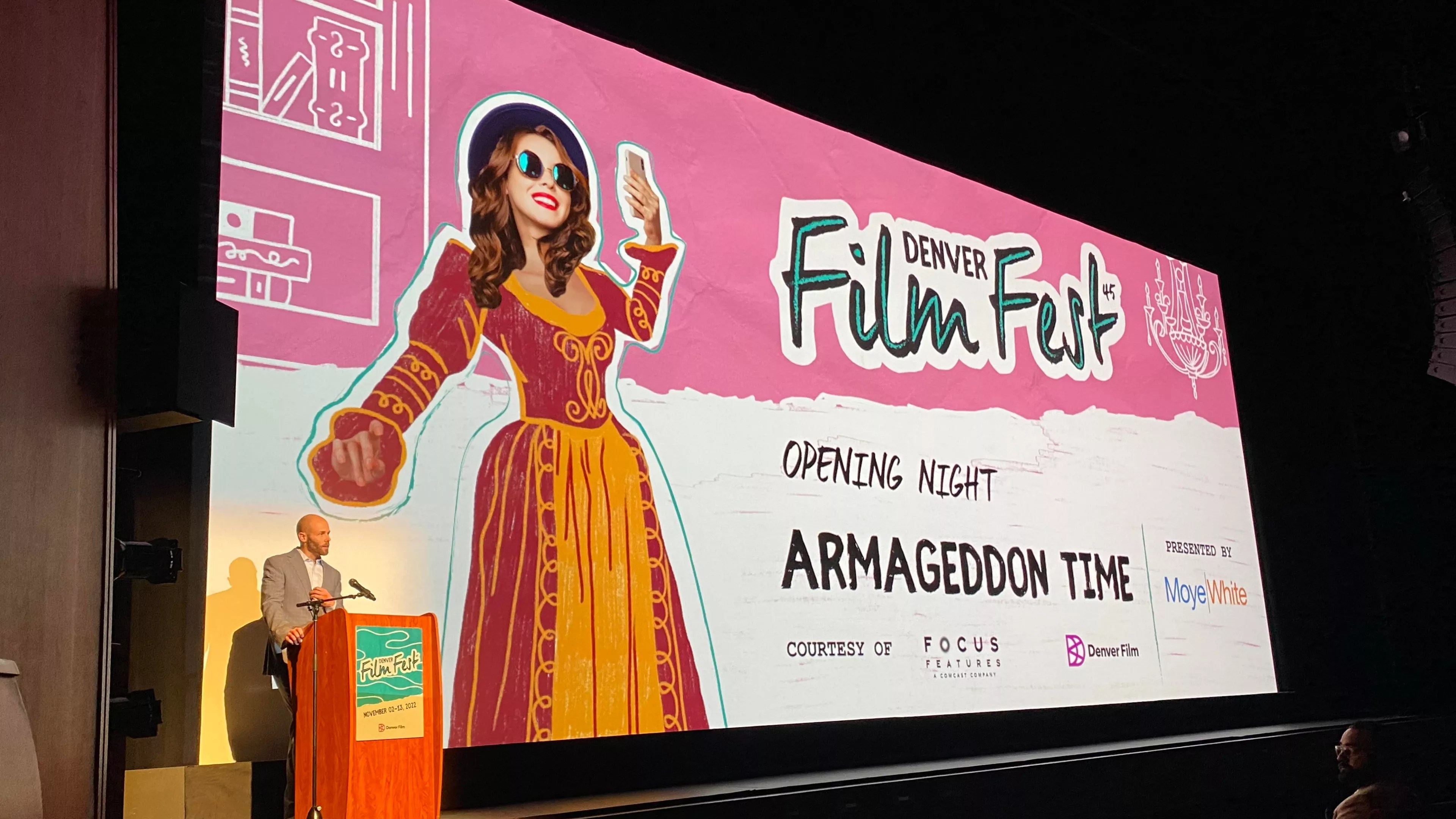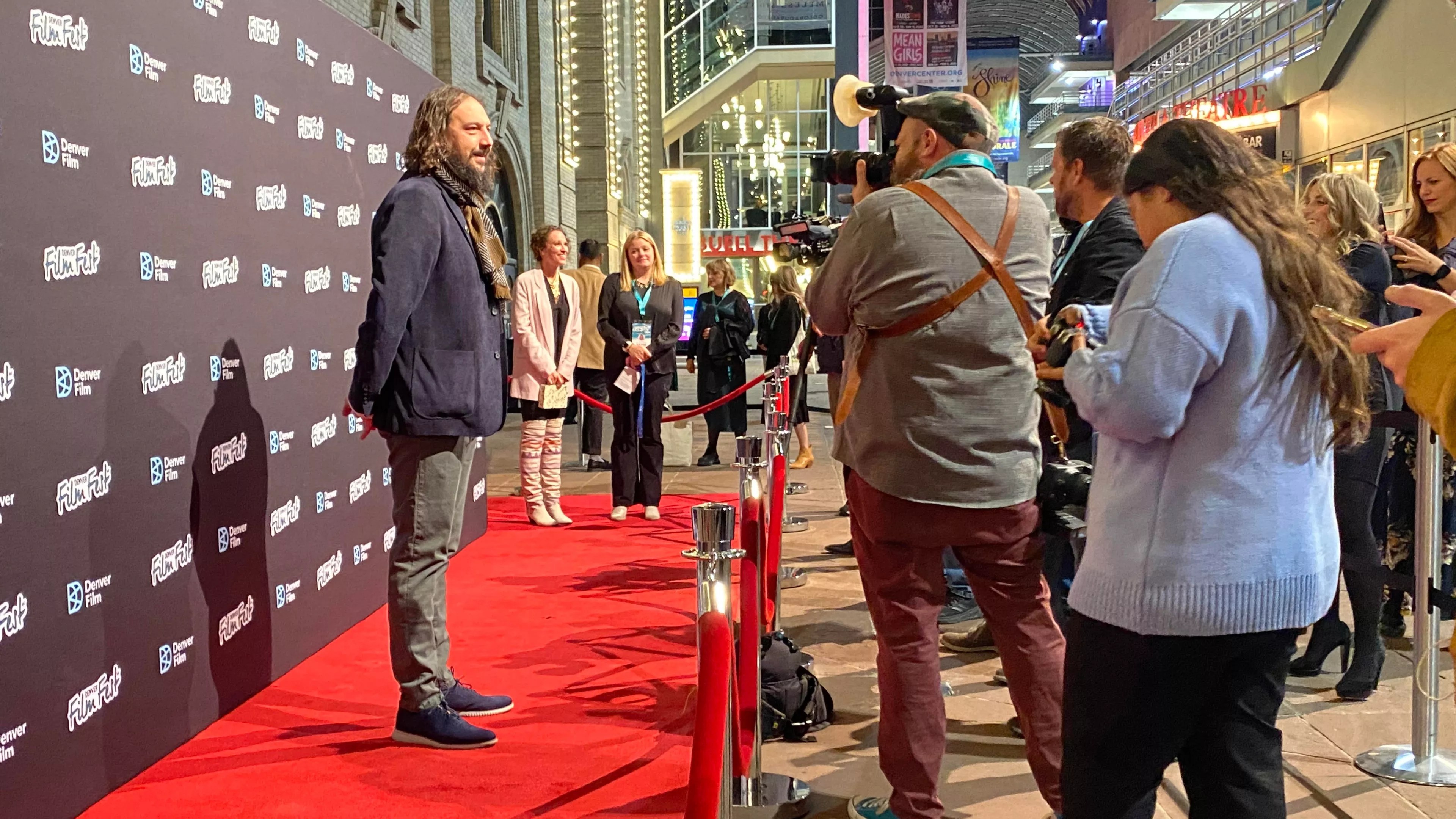
Photo by Michael Roberts

Audio By Carbonatix
The 45th annual Denver Film Festival screening of Armageddon Time last night, November 2, wasn’t the venerable event’s first presentation at the Ellie Caulkins Opera House since the COVID-19 pandemic. In 2020 the festival was primarily virtual, while the 2021 edition returned to its in-person roots, albeit with lingering virtual components. Yet the gathering seemed like the real return to normalcy, allowing cineastes of every stripe to sit side by side with their bare faces reflected in the glow of the silver screen.
New Denver Film CEO Kevin Smith’s introduction to the eleven-day extravaganza perfectly captured this vibe. His remarks were enthusiastic, exuberant and emotional, leaving festival founder Ron Henderson in tears.
Like most cultural organizations, Denver Film has faced no shortage of challenges in connection to the pandemic, and plenty remain. The venue wasn’t close to sold out – the main seating area was mostly full, but the upper tiers were generally unoccupied – and the large number of attendees with bluish-silver hair underscored the festival’s need to add younger folks to its membership in order to flourish for the long haul. Moreover, a nostalgic video displaying gorgeous photos from the fest’s history underscored the fact that big-name guests, who once flocked to Denver for the celebration, have become a rare commodity. Note that the Reverend Al Sharpton, who was supposed to take part in a post-screening interview on November 10, pulled out after the programs were printed.

Patrick Hackett, producer of Life Rendered, gets the red-carpet treatment.
Photo by Michael Roberts
The red-carpet roll-out in the hour before the lights dimmed wasn’t exactly chock-a-block with star power. Arguably the most recognizable mug belonged to Devan Blake Jones, a former finalist on The Voice, while most of the other VIPs who posed for photographers, such as Life Rendered producer Patrick Hackett, typically remain behind the scenes. And that’s not to mention the group on hand to represent King of Laughter and You Came Back, which was dominated by individuals from the Italian consulate.
But all that was forgotten when Smith stepped to the podium. In his remarks, he checked the usual boxes, thanking sponsoring organizations and the like. But he also introduced his parents, who’d flown in from Michigan for the occasion, by way of amusing film-centric anecdotes; his mother had to keep making new video recordings of The Wizard of Oz because young Kevin wore them out, while his father made the mistake of showing him Deliverance before taking him on a rafting trip.
Even more touching were Smith’s valentines to Denver Film predecessors whom he credited with helping him to reach his present position with the organization. He lauded former festival director Britta Erickson before eulogizing Brit Withey, the longtime DFF artistic director who died in a 2019 car crash. Smith found himself getting choked up even before his salute to Henderson, seated a row or two from me near the front of the stage, who was openly crying before the remarks were through.
Armageddon Time didn’t produce nearly as strong a response. The latest effort from writer/director James Gray was easier to respect than like, and this lack of affection could make its Oscar goals more difficult to achieve.

The crew representing King of Laughter and You Came Back strikes a pose.
Photo by Michael Roberts
Set in 1980 New York City amid Ronald Reagan’s successful run for the presidency, the narrative revolves around young wannabe artist Paul Graff (Banks Repeta) and his relationship with a Black classmate, Johnny (Jaylin Webb), against a backdrop of racism that ranges from overt, as represented by students at a private school to which he’s sent in an attempt to straighten him out, to the subtle prejudice exhibited by his mother, characterized by Anne Hathaway in an uptight, dowdy mode, and his father, whom Succession veteran Jeremy Strong portrays as a supposedly liberal shlub with a violent side. Meanwhile, Anthony Hopkins appears as Paul’s grandfather, who seems like he’s been imported from another family in order to serve as the voice of reason and Gray’s de facto mouthpiece.
White privilege and white guilt are refracted through a Jewish lens throughout a plot that goes exactly where it seems to be heading all along. But instead of ramping up the drama, Gray opts for a more muted approach, and encourages his cast to underplay rather than engage in histrionics. The performances that result are uniformly solid but not nearly memorable enough to elevate themes that are more deeply conventional than Gray seems to realize. Still, he deserves credit for one amusingly unexpected twist – personifying Donald Trump’s father, Fred Trump, as the symbol of the America to come. Paul’s alienation is understandable.
As the credits rolled and the attendees began heading for the exits, though, their delight in being together again was palpable – and they’ll have many more chances over the course of the Denver Film Festival.